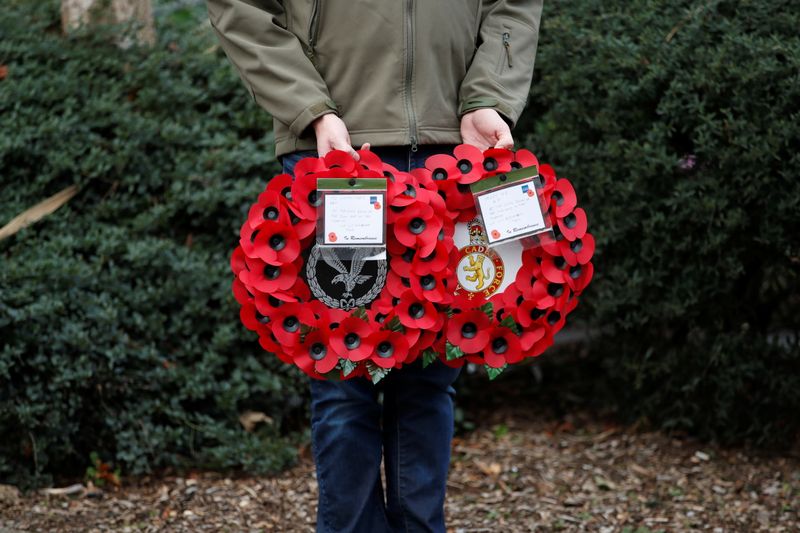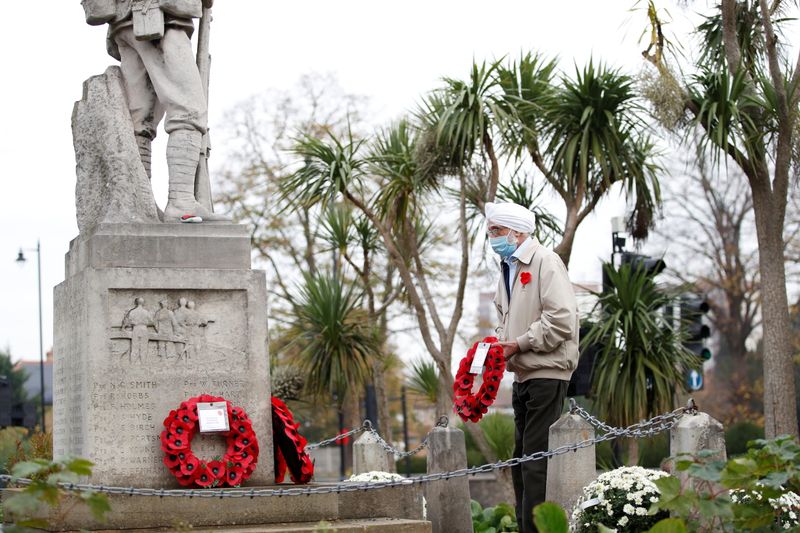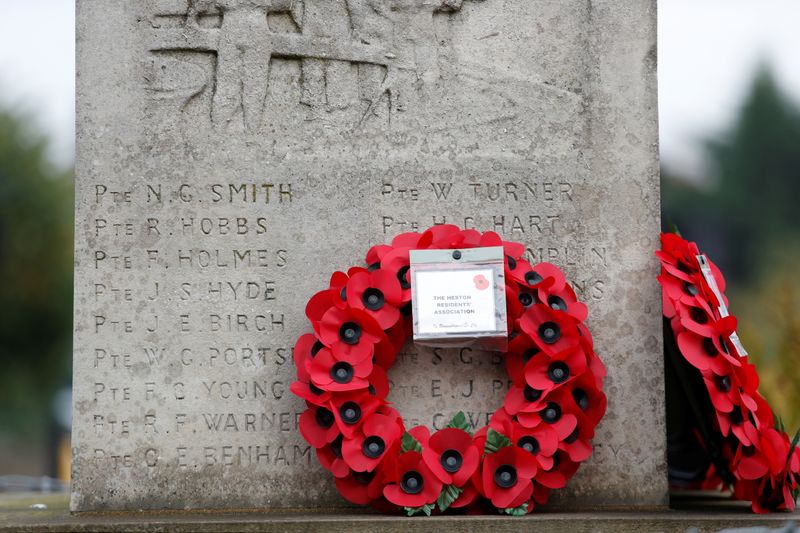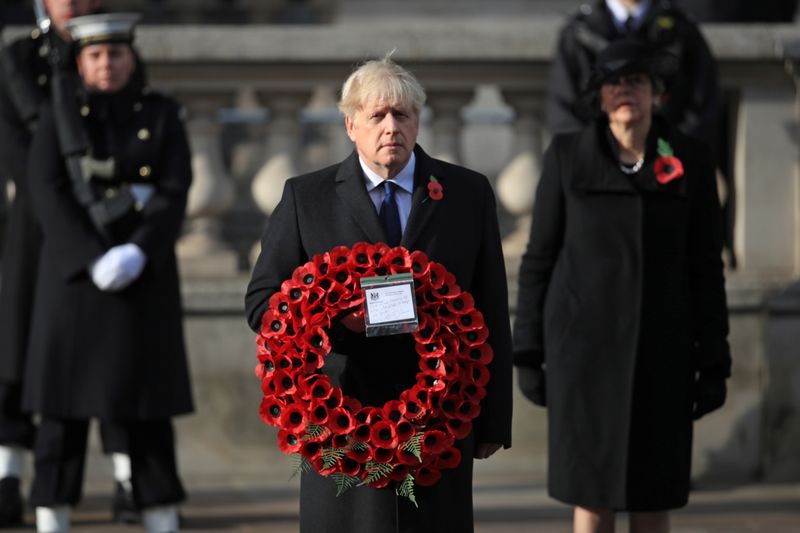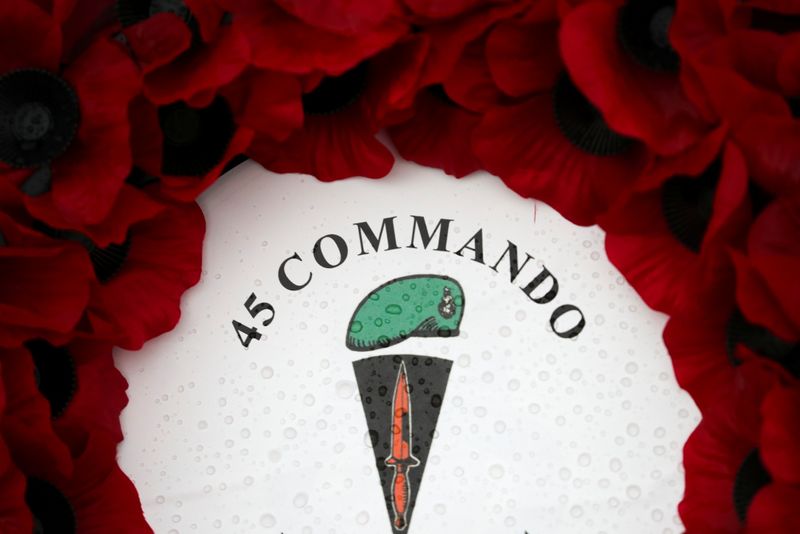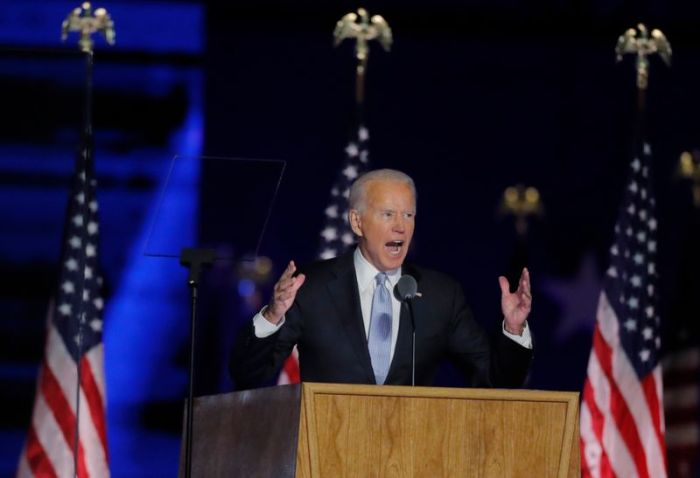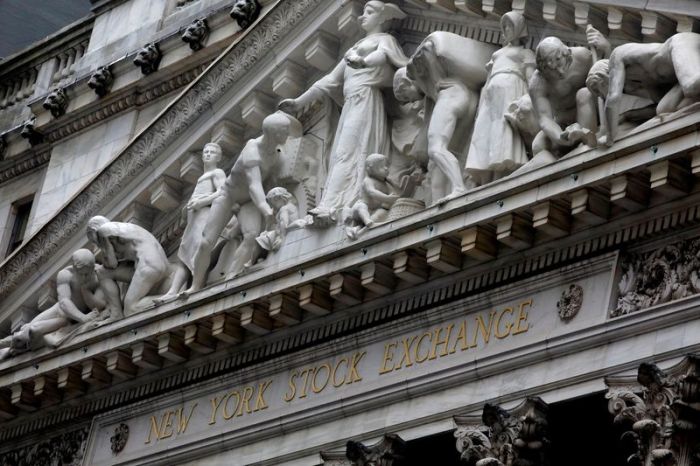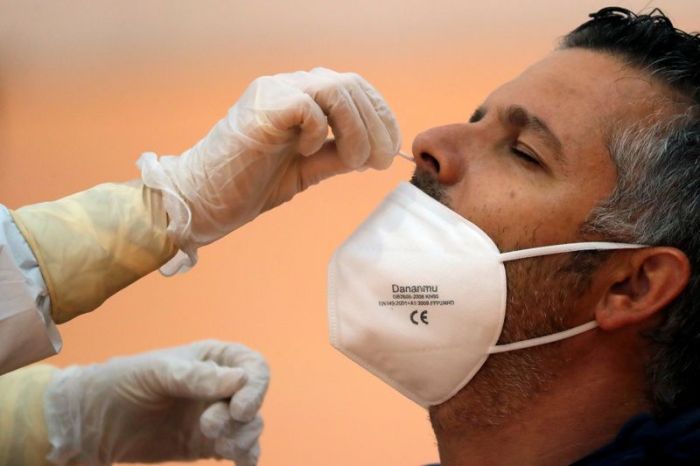LONDON (Reuters) – Britain’s poppy appeal, when tens of millions buy a red paper or metal poppy to remember the war dead and help armed forces families, is facing a battle of its own – collecting money amid the strictest lockdown in peacetime history.
Charities across the world are struggling after the novel coronavirus lockdowns closed swathes of the economy, drove millions out of work and shuttered normal life – including many traditional ways of giving.
Even the hardy Remembrance Poppy has been threatened.
Red poppies sprang up beside the fallen amid the carnage of World War One trench warfare in the fields of Flanders, a contrast that swiftly graced some of the grief-stricken poetry of the so-called Great War.
In Britain, the United States, Canada, Australia and New Zealand, the Remembrance Poppy became a poignant symbol of respect for the war dead, a source of support for veterans and their families, and a way to reflect on the horrors of war.
But the COVID-19 pandemic has impeded what is the Royal British Legion’s biggest fundraising campaign. It is millions of pounds behind its usual total collection of 50 million pounds ($66 million).
“This will be the first time in the history of the poppy appeal that our volunteers will be unable to carry out face to face collections anywhere across the UK,” the Royal British Legion’s director general, Charles Byrne, said.
“The loss of that activity could run into millions of pounds in fundraising which means online donations are crucial,” Byrne said.
STATIONS, CHURCHES, SCHOOLS
The sale of more than 40 million poppies usually takes place at stations, churches, offices, schools and factories across Britain, with services on Remembrance Sunday and two minutes of silence on the 11th hour of the 11th day of the 11th month to mark the moment the guns fell silent in 1918.
This year much is different.
In a sign of the COVID-19 times, the fundraising campaign has been forced largely online. The Royal British Legion is offering downloads of poppies and asking people to display one in their window.
The normal annual Remembrance Sunday march past the Cenotaph in London did not take place though Queen Elizabeth attended a scaled back ceremony from a balcony.
“Like everything in this time of coronavirus, everything is up in the air,” Alexander Owen, head of armed forces engagement at the Royal British Legion, told Reuters.
Poppy fundraising in Canada, Australia and New Zealand has been severely affected though there are hopes that by ANZAC day on April 25, when Australia and New Zealand honour their war dead, there could be some semblance of normality.
The United Kingdom’s charity sector had an income of more than 81 billion pounds in 2019, but is facing an expected funding gap of more than 10 billion pounds in this half of the year alone as income drops and demand for many services rises, according to Pro Bono Economics, a research organisation, which monitors the sector.
A Pro Bono Economics survey of 261 UK civil society organisations, showed 88% of respondents expected COVID-19 to reduce their income relative to pre-crisis plans. Nearly 60% said they have had to “significantly” reduce their activity.
While some health charities involved in the COVID-19 response have seen a rise in donations, other charities have seen lower revenue – for example those dependant on charity shops and some charities involved in education.
(Reporting by Guy Faulconbridge and Ben Makori; Editing by Janet Lawrence)

